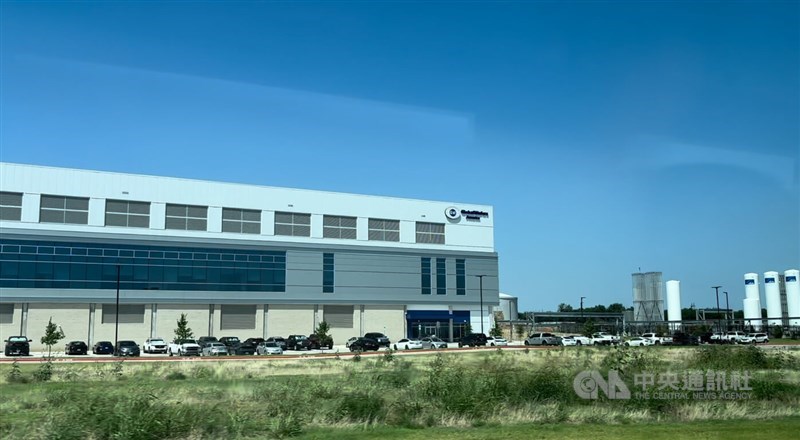
Taipei, Aug. 24 (CNA) Texas is emerging as a key hub for global technology and manufacturing, attracting major Taiwanese companies, but rising wages and living costs are creating steep hurdles for investors, local businesses told CNA recently.
With U.S. President Donald Trump's "Made in America" agenda and high tariffs on imports, more firms are choosing Texas as a U.S. base, insiders said.
Chen Shih-hsiu (陳世修), head of the Taiwanese Chambers of Commerce in North America, said that most Taiwanese firms are clustered in Houston and Dallas. Major investments include GlobalWafers, Delta Electronics, and System Electronics.
Dallas is particularly attractive, Chen said, because of its diverse industries, strong supply chains, and location at the center of North America.
Tax-free trade under the Agreement between the United States of America, the United Mexican States, and Canada (USMCA) also adds to its appeal, he said.
Texas data shows Taiwanese firms have announced 15 projects in the state over the past decade, totaling nearly US$11.2 billion and creating 3,550 jobs.
Electronics giants such as Foxconn, Compal, Quanta, Wistron, and Pegatron have already set up operations in Texas, Chen said, adding that suppliers of screws and plastics are also considering entry, drawn by cheap land, strong transport links, and no state income tax.
Beyond manufacturing, Texas is gaining ground in AI and space technology. For example, Taiwan-based Phison Electronics is working with local partners to develop the world's first data center in space.
Houston is a hub for space industries, and storing sensitive data in orbit avoids geopolitical risks, Phison's U.S. chief executive Wu Tsung-cheng said, calling it a rare chance for Taiwanese firms to join America's cutting-edge technology industry development.
With Tesla, AMD, HP, and Dell already in Texas, Wu said the state is becoming a tech magnet despite uncertainty over U.S. tariff policy.
Still, costs are rising quickly. Texas accounts for 36 percent of U.S. semiconductor manufacturing, but rapid growth has pushed up wages, housing, and property taxes.
"Salaries here are now close to California levels," warned Wang Rong-bang (王榮邦), head of Taiwan-based TECO Electric & Machinery Co.'s automation division.
Taiwanese companies aiming to establish a U.S. presence must adapt, said IntelliEPI Chairman Kao Yung-chung (高永中), as investing in the U.S. will always be more costly and take longer than in Taiwan.
"Taiwanese firms need to treat their U.S. operations as American companies, not just extensions of Taiwan," and it is unrealistic if companies expect to bring all their personnel from Taiwan, he added.
- Sports
Taiwanese Canadians in Toronto host first 'Taiwan Day' with Blue Jays
09/15/2025 02:06 PM - Business
Taiwan shares close down 0.46%
09/15/2025 01:56 PM - Society
Education ministry to review petition to delay school start times
09/15/2025 12:54 PM - Cross-Strait
- Sports
Taiwan gymnasts win silver, bronze at World Challenge Cup
09/15/2025 10:39 AM